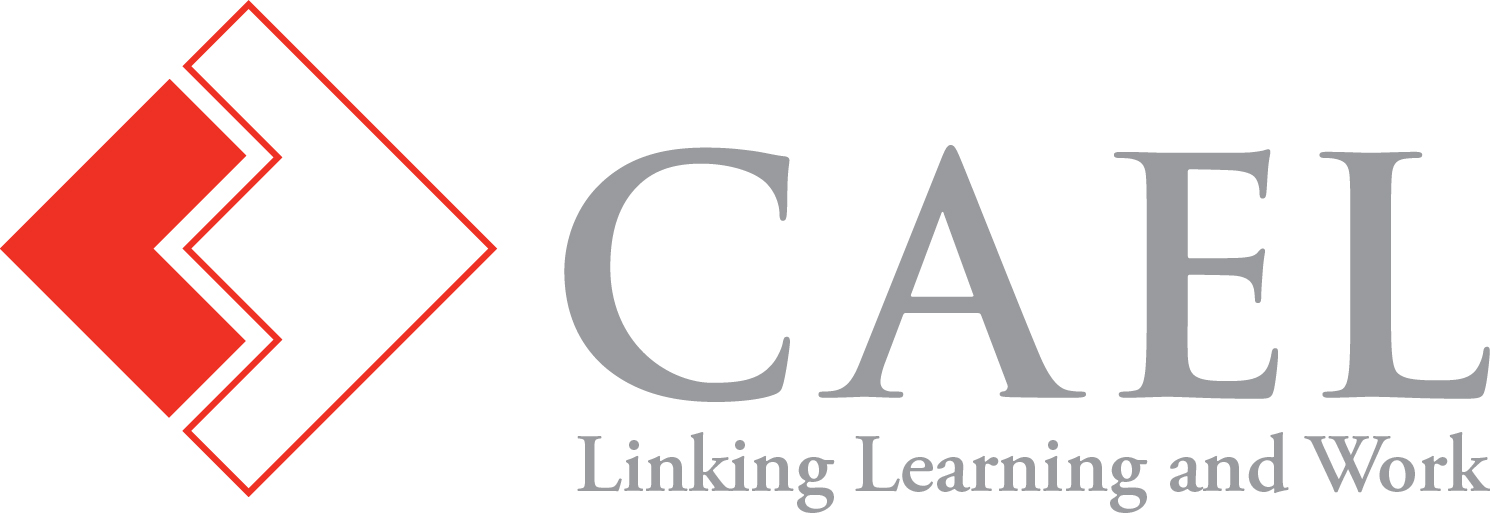Soundbites: Making Sense of Adult Learning

This is Toni Johnson with Heron.org Soundbites. I’m here today with Gabi Zolla, a representative for the Council of Adult and Experiential Learning, a Heron grantee, to talk about CAEL‘s impact. Hi Gabi.
Hi Toni.
Gabi, can you tell us a little bit about what CAEL is and what it does?
Yes. We’re the other vegetable. We are a connector for adult learners. Our whole focus is on working adults who are trying to earn meaningful credentials to get better jobs to support their families.
You, as part of a capital raise, received an enterprise capital grant from Heron. Can you talk a little bit about what the capital raise was for and sort of what’s happened since then?
Yeah, absolutely. We work directly with colleges, helping them become more adult-learning focused or better serving their working learners, and we work directly with companies, helping them understand the value of investing in their frontline workforce. Then we also work with workforce boards and economic development groups in communities across the country. The Heron investment is really helping us increase our top-line revenue so that we can increase our social impact and affect more lives of adult learners who are trying to earn meaningful credentials.
What does that impact look like? Can you just paint a picture for, what’s happening with CAEL? What are you doing? Who are you affecting?
Yeah, absolutely. One area of the growth plan, we have a five-year growth plan and we’re entering year two of that growth plan. One area of that growth plan is specifically focused on LearningCounts. This is our national service for what inside of higher education has called “prior learning assessment.” What PLA, or prior learning assessment, means is helping people earn credits for their experiential learning outside of the traditional classroom.
Say you were in marketing for 20 years and you didn’t have a Bachelor’s degree. Instead of sitting through Marketing 101, which you could probably teach, you can build a portfolio of your learning from your experience and you can have that assessed for college credit. Now, CAEL has helped companies, colleges rather, do this across the country for decades. We’ve been around since 1974, helping them both start their own PLA programs, do it better, train faculty across the country to do the assessment of the portfolio.
Recently we launched our own service called “LearningCounts: College credit for what you already know.” We have schools who have agreed to accept CAEL’s credit recommendation. We have learners who are going through our process and submitting portfolios and having those portfolios assessed for college-level credit. The social impact dollars from Heron have allowed us to expand LearningCounts exponentially and really have a business plan behind how to grow LearningCounts. We have specific targets around how many featured network institutions we will reach in the five-year growth plan. How many students we will reach.
This will save, for the individual person what it does is it saves them time and money to completion, and it also is a great motivating factor. If you’ve worked in a field for many years and don’t have the credential behind it, it’s a great motivating factor to be able to say, oh, I actually have college credit from my experience.
Can you tell us a story about what is this look like on the ground? Is there a community or a student adult learner that comes to mind when you think about how this is impactful?
Yeah. I’m going to tell you two stories. The first story is actually about our roots and our founding. Our president and CEO Pam Tate’s brother came back from Vietnam and he was working in a factory job and trying to go to community college. Back at that time, there were no evening courses. There were no online courses. There were no weekend courses. His factory job kept switching his shift. Every couple of weeks, he’d work the night shift, and then every couple weeks he’d work the day shift, and he ended up having to drop out of community college because he had to work to support his family.
Pam, our president, saw the impact on him and his family and his livelihood and she had a different path. She was the first in her family to go to college and graduate. That’s really in our roots. It’s in our DNA. You can see the positive impact it has on people’s lives.
A more recent example is, we had a Learner of the Year at our conference, Tanika, who actually went through our LearningCounts prior learning assessment service. She had dropped out of high school, actually. She got her GED and then she really wanted to go on. She was a single mom at an early age. She was actually working on the railroad as a janitor on Amtrak. There was an older woman who saw in her, possibility. She said, “you don’t want to be me when you’re 65 years old. You go and you do this for yourself and you do it for your daughter.”
She went back to school. She started on that journey. She had taught herself how to code, so she was self-taught, so she did LearningCounts and she earned credit through our LearningCounts service which was a great jump-start on her journey to earn her Bachelor’s degree. Since then, we’ve heard that her daughter is also enrolled in college, so it can have an amazing generational effect as well.
Terrific. Well, thank you so much, Gabi. For Heron.org, this is Toni Johnson.